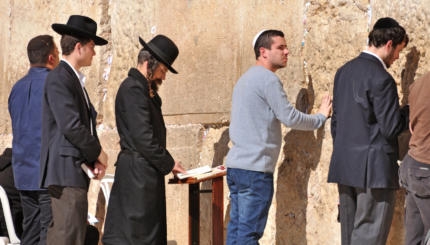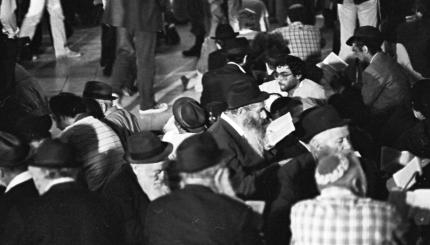Among the acts of caring that are obligatory and meritorious in Jewish law and ethics, visiting the sick is especially significant. Its importance is underscored by its appearance in our daily prayer book‘s top three texts for the Torah study blessing (“These are the things” ), that familiar Mishnaic list of the good deeds that yield dividends to the doer in this world, while the capital is stored for the world to come. A classic midrash portrays God as modeling this mitzvah when God appears to Abraham in Genesis 18, a narrative that comes just after the story of Abraham’s circumcision: God is visiting the recovering patient.
The mitzvah to visit the sick extends to people of all ethnic and religious groups (Shulhan Arukh, Yoreh De‘ah 335:1). The purpose for doing so is to alleviate suffering, evident from the rabbinic adage that the visitor relieves the ill person of one sixtieth of his suffering (Leviticus Rabba 34). Aware that the presence of visitors might instead become a burden or cause embarrassment, the tradition attempts to regulate many aspects of this mitzvah.
Rules for Visiting the Sick
For example, we should wait a while before visiting someone who falls ill, so as not to give the patient the impression that the illness is grave. All but close relatives and friends are advised to postpone a first visit until the third day of the illness — unless that illness is indeed serious.
We should visit often, yet not impose a burden on the patient and his caretakers. The rabbinic tradition advises exercising good judgement regarding the time of day when we visit: in the early hours of the morning, medical professionals are usually attending to the patient, and in the evening she is usually tired (BT Nedarim 40a). Surprisingly, perhaps, we are called on to exercise discretion regarding whom we choose to visit: an ailing enemy may interpret a visit as gloating over his misfortune.
Healing Prayers
Another traditional form of assistance to the sick is to offer prayers on their behalf. Visitors may pray for the patient’s recovery, and it is a near-universal custom to offer a special prayer (known by its generic opening words, mi she-berakh — “[May] the One who blessed…”). In a departure from the more usual [in traditional circles] patronymic style of reference, the subjects of these prayers are referred to in many communities by first name and matronymic): e.g., “Dinah daughter of Leah” or “Joseph son of Rachel.”
In many pre-modern Jewish communities, a special Bikkur Cholim Society provided for the needs of the ill. In some Western countries and in Eastern European communities, this tradition of medical self-help within the Jewish community was a source for the development of private hospitals under Jewish communal sponsorship. In synagogue communities today, the rabbi is often expected to visit sick congregants, while some have committees that make sure other members come to visit.
mitzvah
Pronounced: MITZ-vuh or meetz-VAH, Origin: Hebrew, commandment, also used to mean good deed.
Torah
Pronunced: TORE-uh, Origin: Hebrew, the Five Books of Moses.



